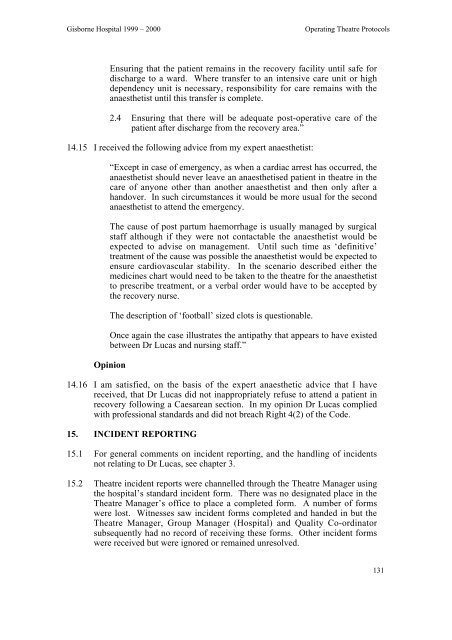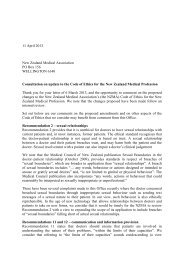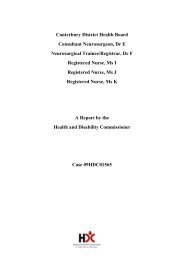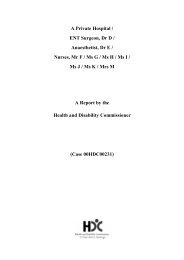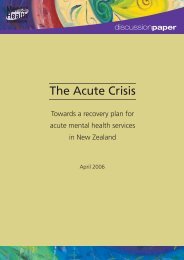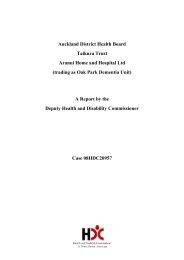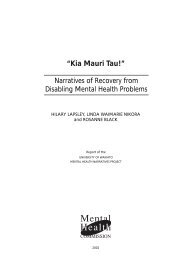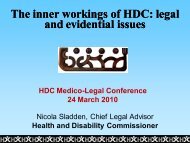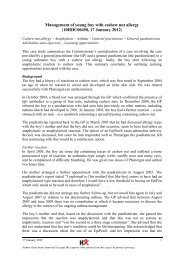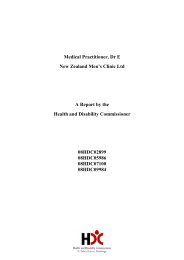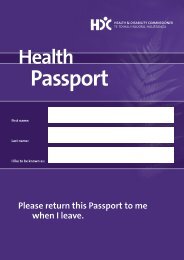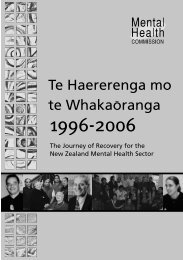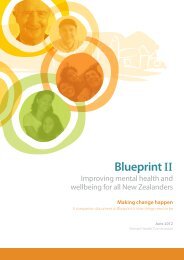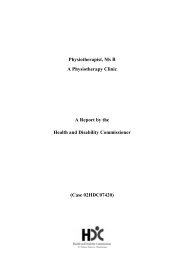Gisborne Hospital Report - Health and Disability Commissioner
Gisborne Hospital Report - Health and Disability Commissioner
Gisborne Hospital Report - Health and Disability Commissioner
You also want an ePaper? Increase the reach of your titles
YUMPU automatically turns print PDFs into web optimized ePapers that Google loves.
<strong>Gisborne</strong> <strong>Hospital</strong> 1999 – 2000<br />
Operating Theatre Protocols<br />
Ensuring that the patient remains in the recovery facility until safe for<br />
discharge to a ward. Where transfer to an intensive care unit or high<br />
dependency unit is necessary, responsibility for care remains with the<br />
anaesthetist until this transfer is complete.<br />
2.4 Ensuring that there will be adequate post-operative care of the<br />
patient after discharge from the recovery area.”<br />
14.15 I received the following advice from my expert anaesthetist:<br />
“Except in case of emergency, as when a cardiac arrest has occurred, the<br />
anaesthetist should never leave an anaesthetised patient in theatre in the<br />
care of anyone other than another anaesthetist <strong>and</strong> then only after a<br />
h<strong>and</strong>over. In such circumstances it would be more usual for the second<br />
anaesthetist to attend the emergency.<br />
The cause of post partum haemorrhage is usually managed by surgical<br />
staff although if they were not contactable the anaesthetist would be<br />
expected to advise on management. Until such time as ‘definitive’<br />
treatment of the cause was possible the anaesthetist would be expected to<br />
ensure cardiovascular stability. In the scenario described either the<br />
medicines chart would need to be taken to the theatre for the anaesthetist<br />
to prescribe treatment, or a verbal order would have to be accepted by<br />
the recovery nurse.<br />
The description of ‘football’ sized clots is questionable.<br />
Once again the case illustrates the antipathy that appears to have existed<br />
between Dr Lucas <strong>and</strong> nursing staff.”<br />
Opinion<br />
14.16 I am satisfied, on the basis of the expert anaesthetic advice that I have<br />
received, that Dr Lucas did not inappropriately refuse to attend a patient in<br />
recovery following a Caesarean section. In my opinion Dr Lucas complied<br />
with professional st<strong>and</strong>ards <strong>and</strong> did not breach Right 4(2) of the Code.<br />
15. INCIDENT REPORTING<br />
15.1 For general comments on incident reporting, <strong>and</strong> the h<strong>and</strong>ling of incidents<br />
not relating to Dr Lucas, see chapter 3.<br />
15.2 Theatre incident reports were channelled through the Theatre Manager using<br />
the hospital’s st<strong>and</strong>ard incident form. There was no designated place in the<br />
Theatre Manager’s office to place a completed form. A number of forms<br />
were lost. Witnesses saw incident forms completed <strong>and</strong> h<strong>and</strong>ed in but the<br />
Theatre Manager, Group Manager (<strong>Hospital</strong>) <strong>and</strong> Quality Co-ordinator<br />
subsequently had no record of receiving these forms. Other incident forms<br />
were received but were ignored or remained unresolved.<br />
131


